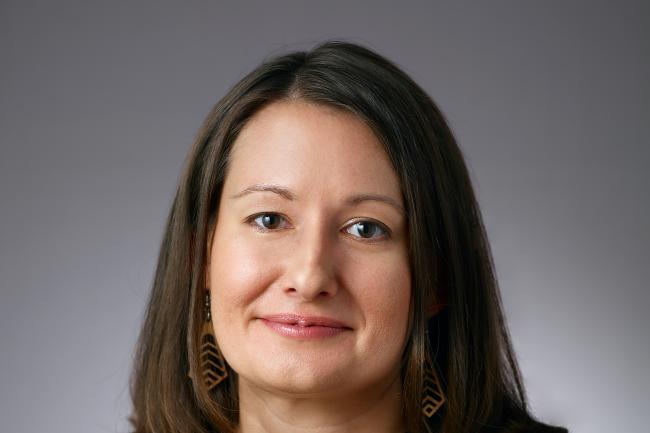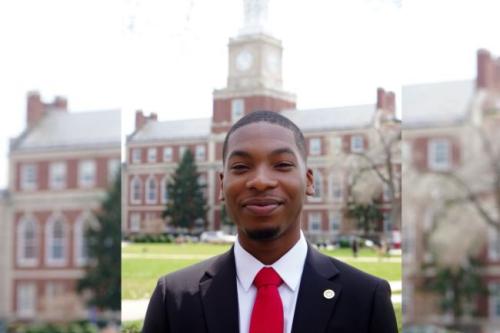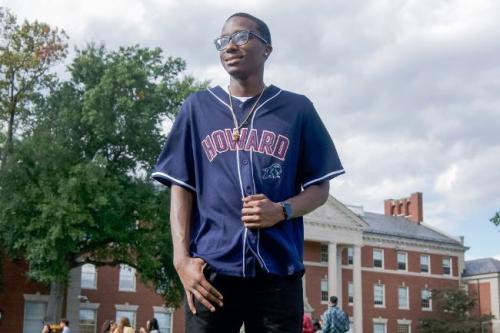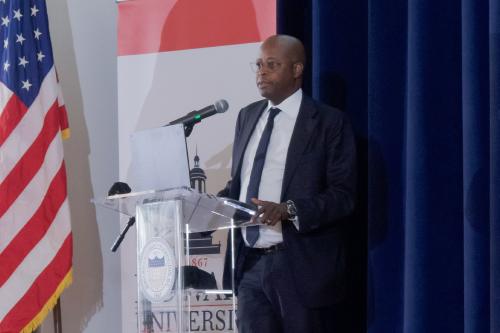Q: What classes do you teach?
A: I teach Introduction to Environmental Studies, in collaboration with the National Education Equity Lab. The Ed Equity Lab is a non-profit organization that helps to align Title I high school students with credit for rigorous college courses. It also helps with college readiness. We cover climate change, carbon cycles, environmental justice and sustainability. In my Climate c=Change Biology course, we look at the effects of climate change on different biological entities and ecosystems. I teach Plant Diversity, which is basically a botany course. I'm the only biology professor who teaches botany at Howard University. I emphasize plant content such as e plant morphology, plant anatomy plants of the African diaspora, medicinal plants, and agriculture.
Q: What careers can students explore with a degree in environmental science?
A: What's amazing about our program is the interdisciplinary structure. There are a lot of opportunities, but it's also challenging for students because there isn't one clear path. The Environmental Studies curriculum includes sociology classes to learn about climate change and natural disasters, architectural courses about sustainable buildings and fashion, and policy classes looking into environmental social justice.
Students can go into careers in physical science, natural science, policy or law, to name a few. One example is that Howard has a partnership with renewable energy firm, Volt Energy Utility, founded by two Howard alumni, is the company that is installing all the solar panels on Howard University campus.
Plant blindness is where most people can't even name 10 plants. I want students to take away awareness. Simply knowing the name of a tree that they have passed a million times on campus."
Q: What piqued your interest in environmental studies?
A: My students say, “Dr. Burke loves plants!” There are over 350,000 species of plants. I find plants endlessly interesting. There's just an endless array of how we can utilize them as humans.
My passion at Howard is just creating more and more opportunities for our students. Internships are essential for helping prepare students to be well-rounded environmental leaders. Representation of women and minorities is very low in renewable energy and environmental leadership. We need diversity in shaping with whom we are interacting, who is at the table for shaping policy and scientific directives.
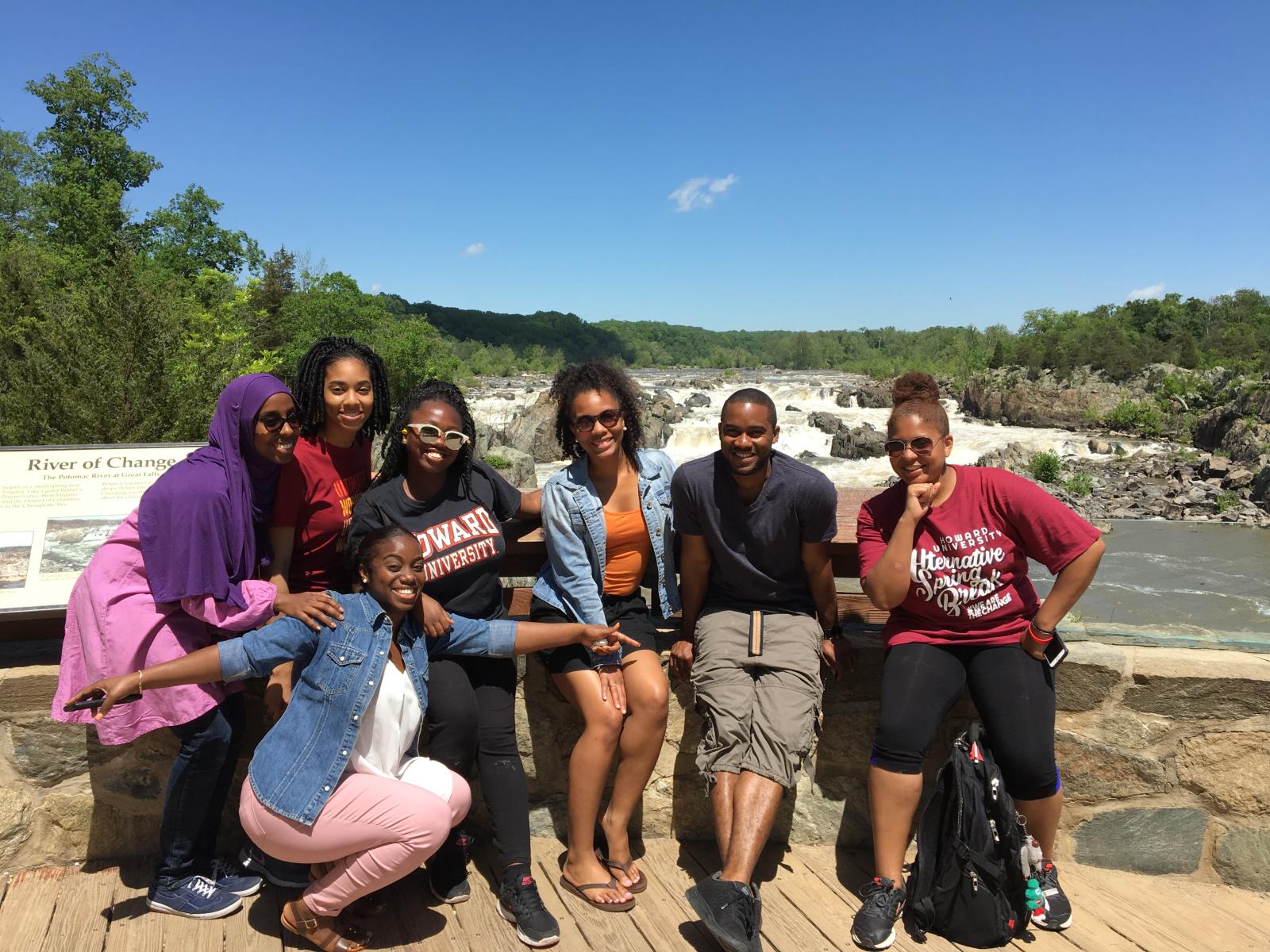
Q: Why is environmental studies/service important?
A: It’s important because we need diverse solutions and diverse perspectives to really tackle such an important crisis. The Climate Crisis intersects with COVID and race and it's not going away. It touches everyone in different ways and is something that everyone can bring back to their community. It's good to have that perspective, career training, and transferable skills for students to look at the bigger picture and learn how to manage data.
Q: What is one of the most memorable projects you have worked on?
A: I had the opportunity to go to Morocco for plant exploration, in collaboration with Moroccan botanists. We are co-authoring a paper together finding plants that were only found in Morocco. I took a graduate and an undergraduate student with me. That’s such an amazing opportunity, right? That was their summer internship. Environmental studies can open doors, different cultural experiences, but also seeing an amazing array of plants.
Q: How can Howard students get more involved in taking care of the campus and planet? What ways can they get involved on campus?
- Howard University Student Association - new sustainability representative position
- Climate Change Club - A great way to be synced in with other students who have similar passion and similar motivation.
- HU Office of Sustainability
- HU Water and Environment Association
Q: What do people need to understand about environmental studies and the environment we live in?
A: Dr. Robert Bullard, the father of environmental justice said, “The environment is everything: where we live, work and play.” The environment isn't just a pristine area preserved somewhere far away. We all interact with the environment and any environment you come from is worth studying. More importantly, Environmental Studies is about community advocacy and community education. Empowering community members to collect their own data and interpret data is something that's going to move us forward. HU is working a lot more on community-engaged data, outreach, and workshops.
Q: What do you want students to take away from your teaching?
A: This field is changing so rapidly. What’s accessible to people and also what we know about how climate change intersects with different things. There's always something new to learn. I want them to take away the thirst for knowledge and they continue to be engaged in climate issues because they will keep affecting you no matter who you are. Another cause important to me is getting rid of “plant blindness.” Plant blindness is where most people can't even name 10 plants. I want students to have more awareness of the plants and animals around them. Simply knowing the name of a tree that they have passed a million times on campus.


